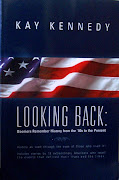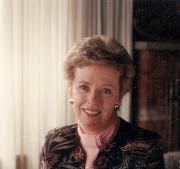When I began writing my book, Looking Back, who knew there would be another book coming out about the same time on the history of the boomers? I started the book because I suddenly realized one day that very little has been written about that era, and that history needed to be chronicled by people who had lived through it. My goal was to create a history book that readers would enjoy. There’s nothing boring about Looking Back!
Then Tom Brokaw’s new book titled Boom came out this month, which I’ve already read. It’s a good book, as would be expected from one of America’s top journalists, and thanks to his celebrity status, specials on the '60s are popping up all over television networks. Before I read it, I had the impression that he was covering basically the same information I had covered in Looking Back, and it’s true that some of it did overlap. However, there are two distinct differences in our books, besides his being twice as long.
1. Brokaw’s book focuses only on the ‘60s. He covers in depth the civil rights movement, the counterculture, and the hippies who traveled to San Francisco for the “summer of love.” I would definitely recommend his book to anyone who wants a nostalgic look back at the turbulent ‘60s because the decade is covered in detail.
Meanwhile, Looking Back covers every decade since the ‘40s and all the ways that America has been impacted by the baby boom. One chapter on the ‘50s tells about the integration crisis in Little Rock, and a chapter is devoted to the ‘60s and the civil rights movement, counterculture, hippies and the “summer of love.”
2. Brokaw interviewed dozens of people for their take on the ‘60s. He talked to both famous and ordinary people who were affected by the Vietnam War and the cultural war at home, recording their memories. I loved reading about some of the roles these people played in bringing about changes, and about those who were left scratching their heads and wondering what was happening.
Looking Back, on the other hand, uses actual stories written by ordinary people who lived through the ‘60s and other decades. These essays are emotional and sometimes raw as writers remember how they felt at the beginning of the civil rights movement in Little Rock as students in the first integrated public school in the South. Some writers recall the emotional moments of serving in the military during the Vietnam War while others shudder at memories of the Cold War. There are several essays that talk about the assassinations and cultural changes that took place during that ‘60s. During later decades, some writers remember how 9/11 changed the their lives and others recall the shock and horror of returning home following Hurricane Katrina to discover their homes and everything they had owned and cherished had been destroyed by the fury of that single memorable mega-storm.
So would I recommend Brokaw’s book Boom to readers? Absolutely! It provides an in-depth look at the defining decade of the boomer era. But for a look at all of the decades that boomers have lived through and impacted, as well as been affected by, Looking Back covers the drama of it all in warm, touching, emotionally revealing stories by the people who were there. We witnessed it, and some of us even took part in the cultural revolution that swept America during the ‘60s. To not read about the decades that led up to the ‘60s is akin to eating a hamburger without the bun. And the technological advances that amaze and sometimes confound us today, plus the social concerns that were raised during the ‘60s still affect Americans and will continue to impact the world in the future. Current and future problems facing us are also covered in Looking Back.
Buy both books for a broad historical perspective on the history of the boomer generation. Believe me, it will be an educational experience and your life will be richer for having read them both!
To order Looking Back or to read an excerpt, click on link on top left.
Thursday, December 13, 2007
Subscribe to:
Posts (Atom)

